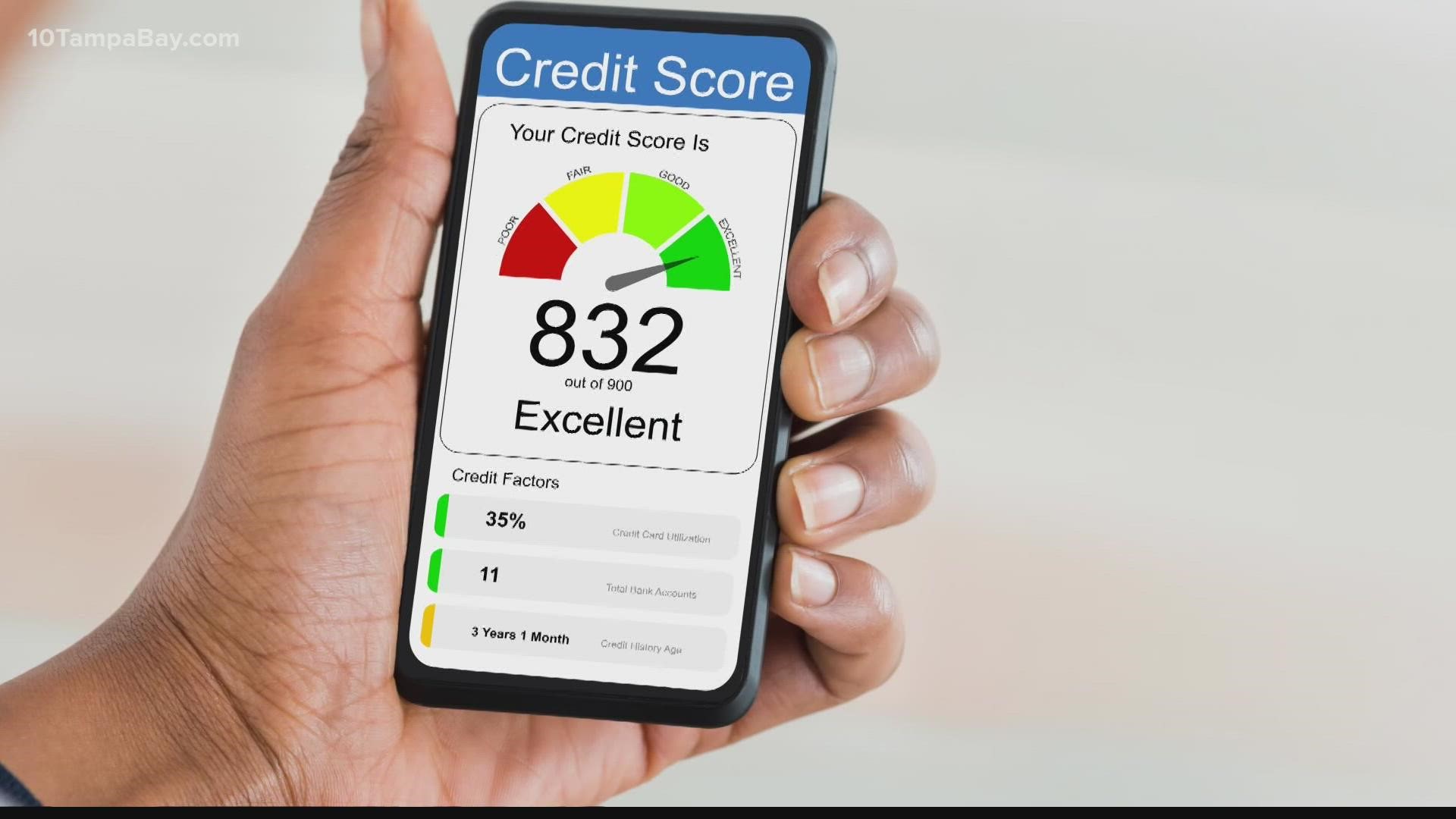NEW YORK — Many people turn to apps to check their credit score without impacting it, but they may not be all they're cracked up to be.
A new study by Consumer Reports finds popular credit score apps may come with extra costs and risks you may not be aware of.
“Most of the apps we examined offer credit scores that aren’t typically used by lenders and come with other drawbacks, like unnecessary costs and privacy risks,” said Syed Ejaz, financial policy analyst for Consumer Reports.
“No one should have to pay extra and trade away their personal data to private companies just to access their own credit information. Congress should give Americans unlimited access to their credit reports and reliable credit scores at no charge so they have an accurate picture of their credit standing without incurring extra costs.”
CR has launched a petition urging lawmakers to pass these reforms.
Right now Americans can only access their credit scores under limited circumstances, and many people CR spoke with said they like having 24/7 access to their credit information so they can track it and catch unauthorized use of accounts.
However, some users raised concerns about the accuracy of their scores, the annoyance of ads, and the risk that their information will be sold to other companies or stolen by hackers.
Consumer Reports looked at 5 popular apps:
- Credit Karma
- Credit Sesame
- Experian Credit Report
- MyFICO
- TransUnion: Score & Report
RELATED: A smaller child tax credit payment is expected for some parents in October, November and December
Here's what they found:
- None of the apps provide users with free access to credit scores that most lenders use to evaluate consumers’ creditworthiness. MyFICO and Experian Credit Report charge users for access to the "industry" credit scores lenders typically use to make lending decisions. MyFICO charges $19.95 per month and Experian charges $19.99 per month or more than $200 annually.
- Four of the five apps charge for credit reports consumers are entitled to access for free once each year at annualcreditreport.com: Credit Karma, Credit Sesame, Experian Credit Report, and TransUnion: Score & Report. Since the start of the COVID-19 pandemic, the major credit reporting agencies have provided free weekly access to credit reports through this website and plan to continue doing so through April 20, 2022.
- All five collect a substantial amount of private information from users and appear to share data beyond the parties named in their privacy policies. The companies use this data to develop detailed user profiles for marketing products or services to users. This extensive data collection may not have immediate benefits for consumers and could pose a privacy risk, especially in light of numerous data breaches at credit bureaus and data brokers over the years.
- Four of the five promote financial products that may not be in users’ best interests: Credit Karma, Credit Sesame, Experian Credit Report, and TransUnion: Score & Report. These apps routinely promote other financial products and services as personalized “advice” or “recommendations” for raising credit scores or saving money but disclose in the fine print that the services aren’t necessarily in users’ best interests. The app providers make money when users sign up for the promoted financial services and stand to earn the most from the deals that are listed most prominently.
- All five services require users to agree to mandatory arbitration clauses that limit their ability to sue the companies in court in the event they are harmed.
CR also gave some tips for users:
- Consider checking credit reports regularly at no cost through annualcreditreport.com and dispute any errors that may appear on them.
- Many banks and credit cards offer free access to credit scores to their customers.
- Be aware of costs and limitations associate with credit score apps.

